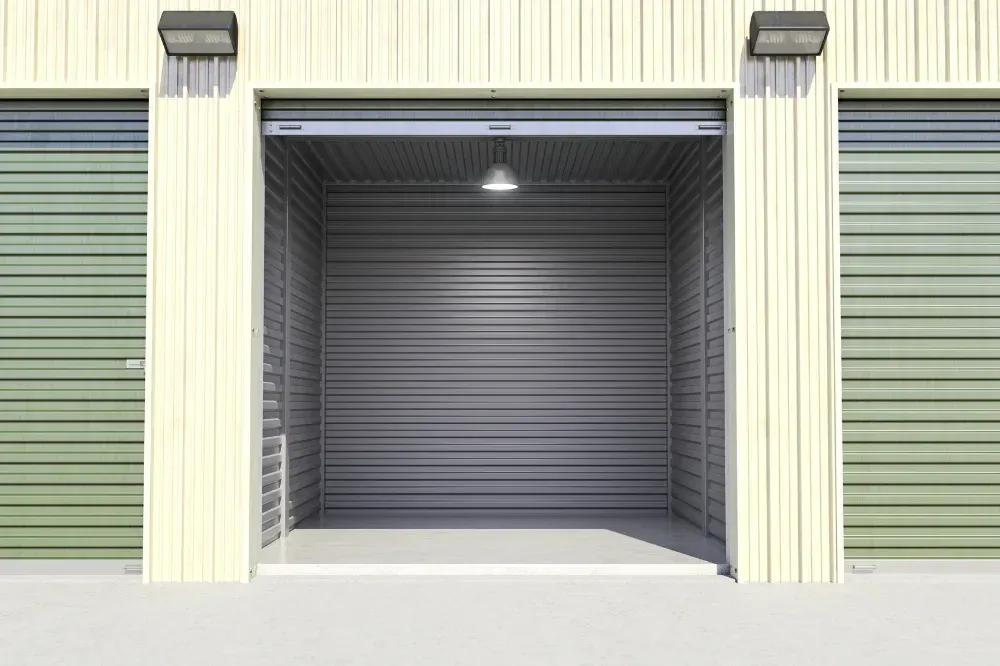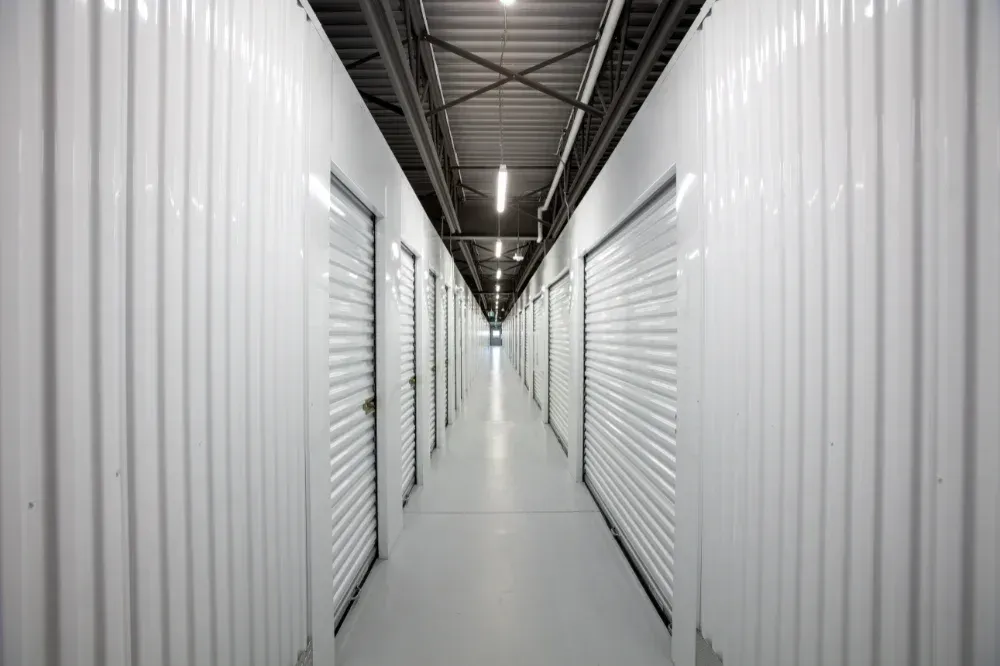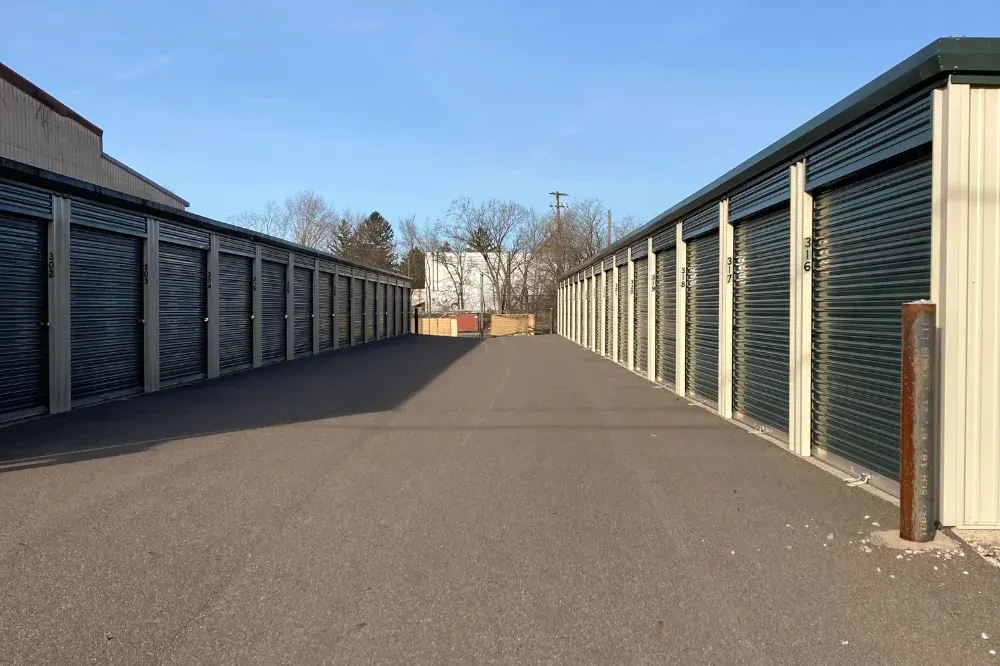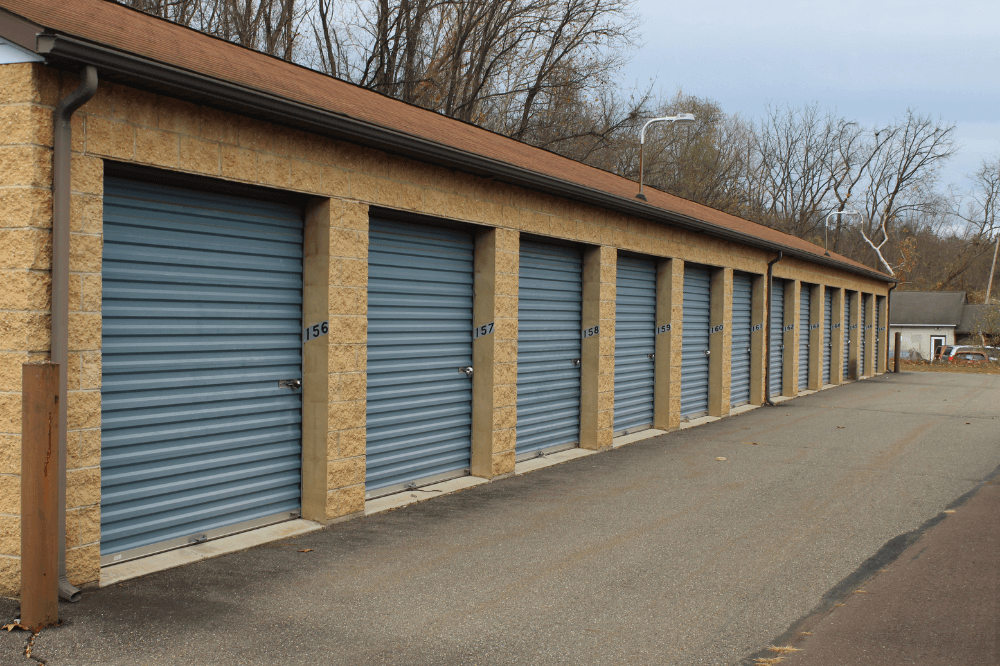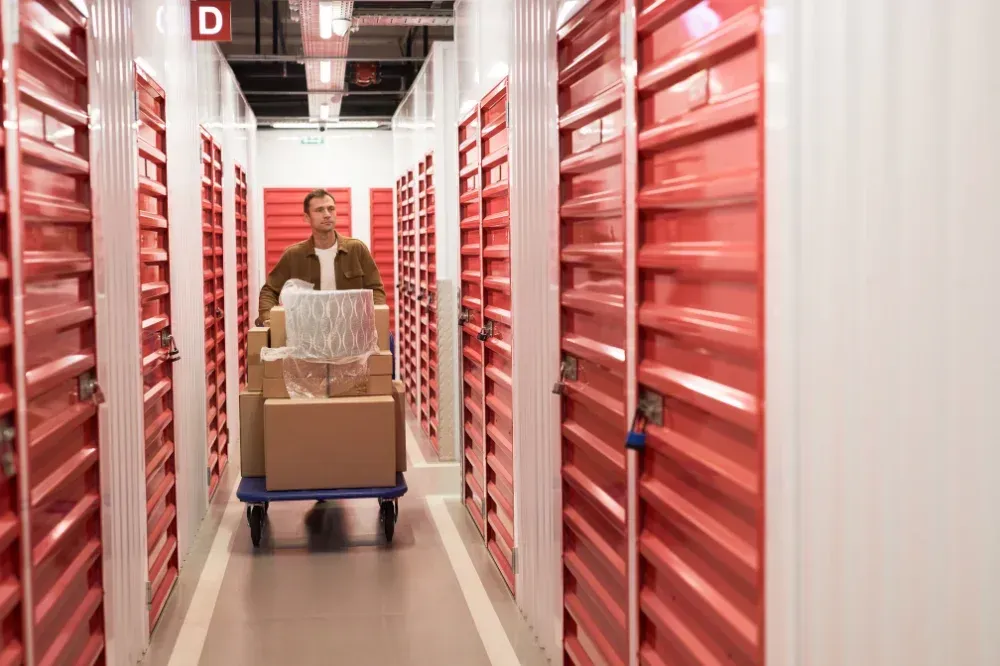How to Safely Store Documents and Important Files in a Storage Unit
How to Safely Store Documents and Important Files in a Storage Unit

Storing important documents securely is crucial to protecting your personal, legal, and financial information. Whether for business or personal use, these records need to be preserved in a safe environment to prevent loss, damage, or unauthorized access. By using a reliable storage solution, you can ensure your documents stay organized and secure.
Importance of securely storing documents
Storing important documents securely is crucial to ensuring their safety and longevity. Whether they are legal papers, financial records, or personal files, proper storage can protect them from loss, damage, or theft. Secure storage methods also provide peace of mind, knowing that sensitive information is safe and organized.
Common reasons people use storage units for files
Storage units offer a convenient solution for storing documents, especially when home or office space is limited. People commonly use storage units to store financial records, legal documents, tax papers, and other important files. Whether for long-term storage or for seasonal paperwork, storage units can help keep documents organized and accessible when needed.
Choosing the Right Storage Unit for Documents
Climate-controlled vs. non-climate-controlled units
When choosing a storage unit, it’s essential to decide between a climate-controlled and a non-climate-controlled unit. Climate-controlled units maintain a consistent temperature and humidity level, making them ideal for sensitive documents such as photographs, legal records, or historical papers. Non-climate-controlled units may be suitable for less sensitive documents, but they are more vulnerable to fluctuations in temperature and humidity.
Security features to look for in a storage facility
Security is a top priority when storing important documents. Look for a storage facility that offers 24/7 surveillance, gated entry, and access control to ensure only authorized individuals can enter. Some facilities also provide individual unit alarms for added protection. Choosing a secure storage facility gives you peace of mind that your documents are safe from theft or unauthorized access.
Preparing Your Documents for Storage
Sorting and categorizing documents
Before placing your documents in storage, it’s essential to sort and categorize them. Group similar files together to make it easier to find specific documents when needed. You can categorize documents by type, such as tax records, medical history, or legal papers. Sorting your documents helps maintain organization and ensures that nothing important is misplaced.
Removing unnecessary papers
Decluttering your documents before storage is a good practice. Go through your files and remove any outdated or unnecessary papers that no longer serve a purpose. Shred or recycle these papers to free up space and reduce clutter. This step ensures that only important and relevant documents are stored, making it easier to keep track of essential files.
Organizing Documents Before Storing
Using labeled folders and binders
To keep your documents organized in storage, use labeled folders and binders. Clearly mark each folder with a description of its contents, such as "Tax Records," "Medical History," or "Legal Documents." This allows for easy access and retrieval, reducing the time spent searching for a specific document. Binders are especially useful for managing large quantities of paper and can help keep everything in one place.
Color-coding for easy identification
Color-coding your files adds another layer of organization. Assign a different color to each category of documents—red for legal papers, blue for financial records, or green for personal documents. This visual method of organization allows you to quickly identify the type of document you need without having to open each folder or binder.
Creating a digital index of stored documents
Creating a digital index of your stored documents can save you time and effort in the long run. Scan your documents and store them in an organized folder on your computer or cloud storage. Create a searchable list or spreadsheet that includes the folder name, contents, and location of each physical file. This makes it easier to locate and retrieve documents without needing to open every box or binder.
Best Containers for Storing Documents
Waterproof and fireproof boxes
For added protection, use waterproof and fireproof boxes when storing important documents. These boxes safeguard your files from water damage, fire, or other disasters, providing peace of mind that your records are secure even in the most extreme conditions. Make sure to choose a box with sufficient space and sturdy construction to prevent damage from compression or external forces.
Plastic bins vs. cardboard boxes
When choosing between plastic bins and cardboard boxes, plastic bins are often the better option for long-term storage. They are more durable, moisture-resistant, and provide better protection against pests. Cardboard boxes are more affordable but can become weakened by humidity or pests over time. If you use cardboard boxes, make sure they are sturdy and place them in a climate-controlled environment to minimize risk.
Vacuum-sealing sensitive documents
Vacuum-sealing sensitive documents can be a great way to keep them safe from moisture, dirt, and physical damage. This method is particularly useful for items like old photographs, certificates, or any documents that need extra protection. Using a vacuum-seal bag ensures that documents stay flat and protected from external elements, helping preserve their condition for years to come.
Protecting Documents from Environmental Damage
How to prevent moisture and mold
Moisture is one of the biggest threats to the preservation of documents. It can lead to mold growth, warping, and deterioration of paper. To prevent moisture damage, ensure that your storage unit is dry and well-ventilated. Avoid storing documents directly on the floor, as this can increase the risk of exposure to dampness. Additionally, regularly check for signs of moisture or leaks in the facility.
Using silica gel packs and desiccants
To absorb any excess moisture in your storage unit, place silica gel packs or other desiccants inside storage containers. These moisture-absorbing materials can help maintain a dry environment and prevent mold growth. Make sure to use enough packets to cover the volume of documents you are storing and replace them periodically to ensure their effectiveness.
Keeping documents off the ground
Elevating your documents off the ground is an important measure to protect them from potential water damage. Store boxes or file cabinets on shelves or pallets, keeping them at least a few inches above the floor. This simple step reduces the risk of water damage from potential flooding, spills, or humidity in the storage unit.
Security Measures for Document Storage
Choosing a facility with surveillance and access control
When storing important documents, security is paramount. Look for a storage facility that offers 24/7 surveillance, gated entry, and access control. Surveillance cameras and restricted access ensure that only authorized individuals can access the facility, providing an extra layer of protection for your documents. Many facilities also offer individual unit alarms to alert you in case of unauthorized access.
Using locked file cabinets or safes
To further secure your documents, consider using locked file cabinets or safes within your storage unit. These add an extra layer of security by protecting sensitive papers from unauthorized access. Choose a high-quality, fireproof safe if you need additional protection for extremely important documents, such as legal papers or financial records.
Keeping a record of stored files
It’s important to maintain an up-to-date record of the documents stored in your unit. Create a detailed inventory list or spreadsheet that includes the contents and location of each file or box. This will make it easier to track your documents, ensuring that nothing is lost or misplaced. Having a digital record of your stored files also helps you quickly retrieve specific items if needed.
Digital Backup for Extra Security
Scanning and storing documents online
Digitizing your important documents is an effective way to create a backup in case of damage or loss. Use a scanner to convert your physical files into high-quality digital formats. Store these files in secure folders on your computer or cloud storage for easy access and protection. This digital backup ensures that even if something happens to the physical copies, you still have a secure version of your documents.
Cloud storage options for accessibility
Cloud storage offers a convenient and secure way to store digital copies of your documents. Services like Google Drive, Dropbox, and OneDrive provide easy access from any device with an internet connection. Cloud storage also offers encryption, making it safer for storing sensitive documents like financial records or legal papers. With cloud storage, you can retrieve your documents anytime, from anywhere, adding an extra layer of security.
Keeping external hard drives as backup
While cloud storage is highly secure, it's always a good idea to have a physical backup. An external hard drive can be used to store digital copies of your documents, providing a reliable backup in case of internet issues or data loss. Make sure to store the hard drive in a safe, secure location separate from your primary storage unit to avoid potential
damage or theft.
Regular Maintenance and Organization
Checking on documents periodically
It’s important to inspect your stored documents regularly to ensure they are in good condition and well-organized. Set a reminder to check on your documents at least once or twice a year. Look for any signs of damage, such as moisture, mold, or pest infestations, and take immediate action if any issues are found. Periodic checks help you stay on top of the condition of your stored files and prevent major problems.
Rotating files and updating records
As documents accumulate over time, it's essential to rotate and update your records. For example, archive older documents that are no longer needed for daily reference, while ensuring that new documents are stored properly. Keeping your files up-to-date and properly organized will not only make it easier to find what you need but also ensure that you are storing only the most relevant and necessary paperwork.
Storing Special Documents
Handling legal documents and contracts
Legal documents and contracts often require special care due to their importance and sensitivity. Store these papers in fireproof, waterproof file cabinets or safes to ensure they remain protected from physical damage. Consider creating both physical and digital copies to provide a backup in case one copy is compromised. Legal records may need to be accessed regularly, so keeping them organized and secure is crucial.
Storing passports, birth certificates, and other sensitive papers
Documents like passports, birth certificates, and social security cards are vital records that require special attention. These documents should be stored in a secure, fireproof safe or lockbox to prevent loss or theft. You might also want to
consider storing scanned copies of these documents in a secure, encrypted digital format as an added layer of security.
Preserving photos and memorabilia
Photographs and memorabilia are often irreplaceable, so it’s important to store them properly. Use acid-free folders or archival boxes to protect photos from deterioration. For digital preservation, scan physical photos and store them in digital formats with backups in both cloud storage and external hard drives. Preserving these items with care ensures they remain intact for years to come.
Avoiding Common Mistakes When Storing Documents
Skipping climate control when necessary
One of the most common mistakes people make when storing documents is skipping climate control, especially when it's needed. If you're storing important records like legal documents, photographs, or historical papers, the environment matters. Excessive heat, humidity, or cold can cause paper to degrade, warp, or develop mold. Always opt for a climate-controlled storage unit if your documents are sensitive to environmental conditions.
Not labeling boxes properly
Proper labeling is essential for efficient document storage and retrieval. Failing to label boxes clearly can lead to confusion and wasted time when searching for specific documents. Be sure to include a detailed description of the contents on the outside of each box, such as the document type, year, and category. This simple step can save you a lot of trouble in the future.
Forgetting to check for pests
Pests can be a significant threat to documents, especially when stored in areas susceptible to moisture or poor ventilation. Always inspect your storage unit periodically for signs of pests, such as droppings or chewed paper. If you notice any, take immediate action to protect your documents and prevent further damage. Consider using pest control measures like sealed containers and regular inspections.
When to Retrieve or Dispose of Documents
Understanding document retention policies
Each type of document has its own retention policy, which dictates how long it should be kept. For example, tax records should be kept for a minimum of seven years, while medical records might need to be kept indefinitely. Research the retention requirements for your specific documents to ensure you're storing them for the appropriate amount of time. Knowing when to keep or dispose of documents will help you maintain an organized and clutter-free storage space.
Securely shredding outdated documents
When documents are no longer needed, it’s important to dispose of them securely. Shredding outdated documents ensures that sensitive information doesn’t fall into the wrong hands. Invest in a high-quality shredder or use a professional shredding service to properly destroy confidential documents, such as financial statements or old contracts, before they are discarded.
Digitizing older files before disposal
Before disposing of older files, consider scanning and digitizing them. This way, you can keep an accessible digital copy without taking up physical space. Once the documents are safely digitized and stored, you can confidently dispose of the original paper copies. Always back up digital files in multiple locations, such as cloud storage and external hard drives, to ensure their long-term preservation.
Conclusion
Recap of best practices for document storage
Storing documents properly is essential to their long-term preservation and security. Best practices include choosing the right storage unit, organizing documents effectively, protecting them from environmental damage, and utilizing digital backups. Regularly checking and maintaining your files will also help ensure they remain in good condition.
Encouragement to take steps for secure storage
By following these best practices and avoiding common mistakes, you can protect your important documents from damage or loss. Whether you're storing personal records or business files, taking the time to set up a secure and organized storage system will give you peace of mind and help keep your documents safe for years to come. Start today and ensure your important files are protected!
FAQs
- How long can documents be stored safely in a unit?
Properly stored documents can last indefinitely in a climate-controlled environment. - Is climate control necessary for document storage?
Yes, it prevents moisture damage, mold growth, and paper deterioration. - How do I protect documents from pests?
Use sealed plastic bins, pest deterrents, and keep the unit clean. - What is the best way to organize legal documents in storage?
Use labeled folders, fireproof containers, and a digital index for easy retrieval. - Can I store digital files alongside physical documents?
Yes, keeping a USB drive or external hard drive with scanned copies ensures extra security.


